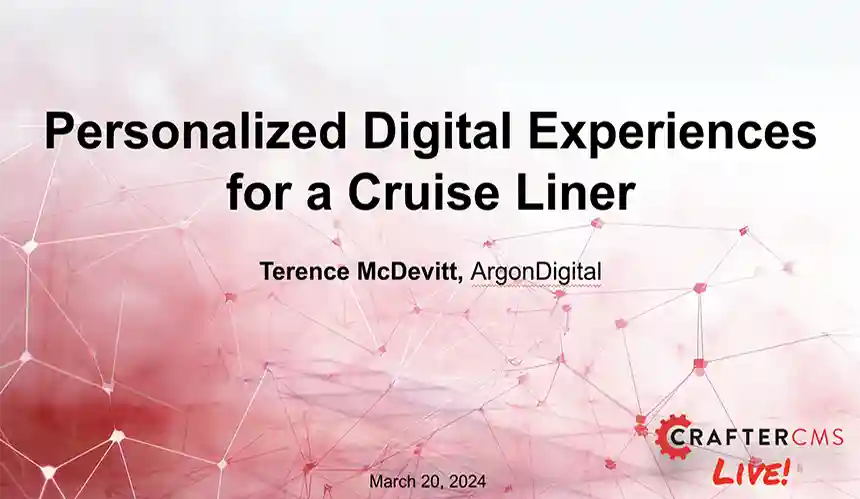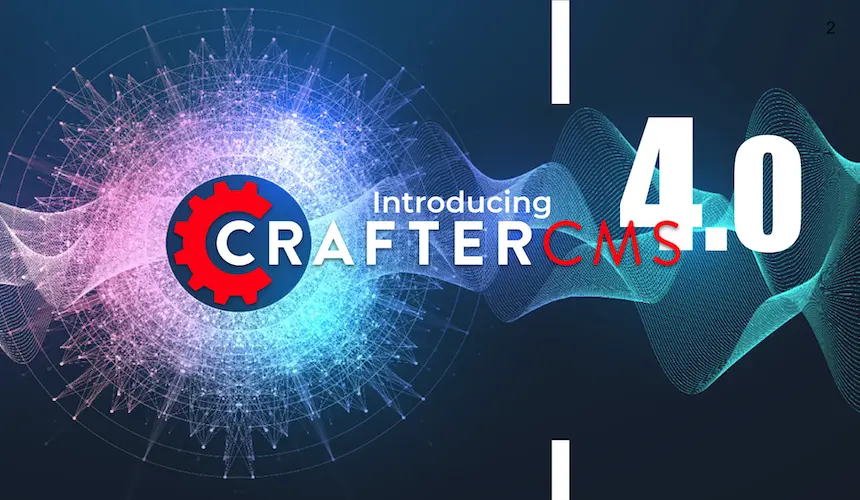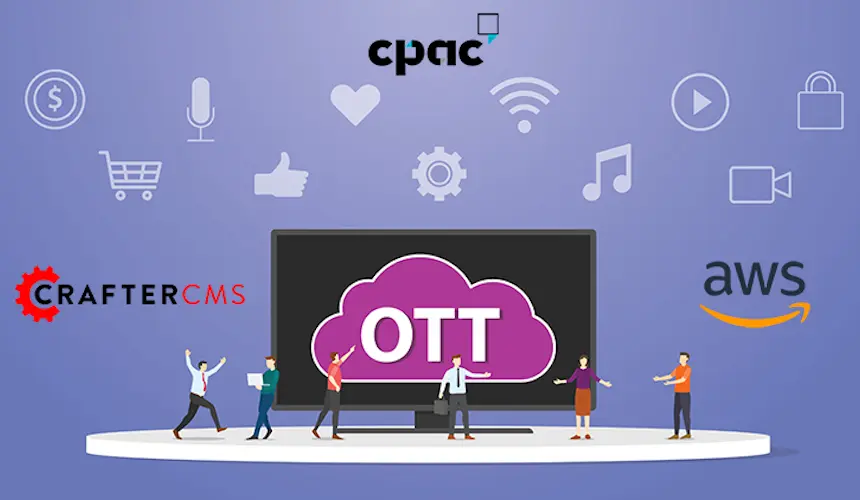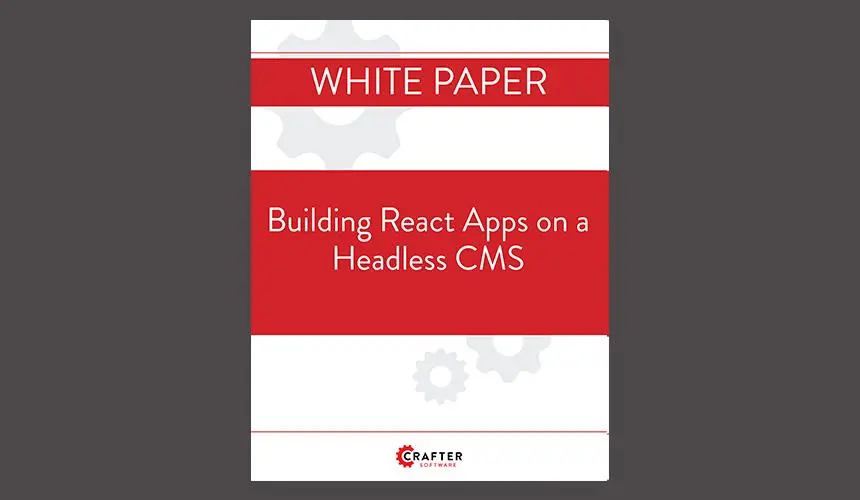Generative AI for eCommerce

Sara Williams

The hype around generative AI solutions might differ from what it was toward the end of 2022. However, that’s not to say companies are losing belief. The reality is that many businesses are experimenting with artificial intelligence and finding ways to leverage it to increase productivity.
In eCommerce (whether B2C or B2B), two factors are the most important to delivering a high-quality customer experience that leads to sales: speed and content production. AI solutions can play a major role in helping companies to produce more content and increase the rate at which they do so. With a modern headless CMS, generative AI can help eCommerce enterprises dramatically scale their content production and increase productivity.
What eCommerce Brands Need to Prioritize to Appeal to Customers
Content plays a significant role as part of any conversion-focused strategy, but simply producing content for the sake of it won’t yield the results that businesses need.
Customers shopping with digital retailers can be pretty fickle. It’s one of the reasons why the average cart abandonment rate is about 70%. But this isn’t because e-commerce companies are inherently doing anything wrong. Instead, it’s due to the assortment of options available to them in the digital world. As such, eCommerce brands should prioritize a few things regarding content production.
Inbound Marketing
It’s typically better for your customers to come to you rather than you going out and trying to find them. That’s why eCommerce brands should prioritize inbound marketing, as it focuses on providing engaging and educational content that attracts buyers. Companies must ensure that they’re creating enough content to reach buyers at all stages of their content journey and on all of their favorite channels. However, they also need to ensure that it meets customer expectations to encourage them to purchase their products.
Personalization
Personalized content and messaging are among the most requested features from eCommerce store visitors and returning customers. No one wants to be just one of another list of a million, receiving the same content. However, they enjoy the content being tailored to their individual needs while considering their demographics, history as a customer, and more.
Data Security and Privacy
The tricky thing about personalization is that while customers demand it, they don’t want to feel like a business knows too much about them. About 50% of consumers are attracted to personalized offers based on browsing history and loyalty data. However, almost a third find certain ‘personalized’ messaging, such as that coming from social media data, to be creepy. That’s why balancing personalization by ensuring data is secure and kept private is just as crucial in ensuring customers become loyal to the brand.
How Generative AI Supports Content and Commerce Initiatives
Publishing and promoting content to help drive conversions is a concept known as content and commerce, or eCommerce content marketing. With the introduction of generative AI, eCommerce brands can gain tremendous support for their content initiatives, helping them increase productivity and speed. Here’s how it supports them:
Image & Video Asset Creation
Generative AI can streamline text, image, and video asset creation. It can take a product demo video and turn it into an animated video that gives marketers a headstart on their campaigns and quickly create an assortment of articles and other content assets for promotion. Even though this content will still need to be double-checked by a human, it still saves time and helps to improve productivity.
Content Repurposing
Along with content asset creation, generative AI streamlines content repurposing efforts. Webinars or podcasts can be turned into SEO-friendly blog articles or social media posts much faster using AI than recreating everything from scratch.
Content Enrichment
With generative AI, content teams can enrich content using tags and other techniques to optimize for SEO. For eCommerce brands, this can increase the findability of certain products, relevant tutorials, and other supporting materials.
Content Analysis
Along with content enrichment, given that AI tools can analyze data much faster than humans, it can aid in content analysis. This can ensure that eCommerce content teams target the correct audience to reach their content. They can also incorporate sentiment analysis and other techniques to provide adequate links between content assets.
Localization
Translations of content are also much faster with AI support. Content created for audiences in the main country can be quickly translated and adapted for those in other regions and countries. Content teams can identify different parameters affecting localization, such as specific images or symbols found on products or contained within content suitable in one region but seen as inappropriate in another.
Strategy & Workflows
With generative AI content, teams can assess when to publish content, which content assets teams should focus on, and when to schedule or update content to reach predefined business goals.
User Experience Enhancement
Generative AI enables eCommerce companies to build Intelligent chatbots that enhance the customer experience. These chatbots can provide a natural conversational tone to appeal to customers and be configured to respond to certain requests with different prompts.
With an AI-based chatbot, store visitors can be asked what information the chatbot should pull to help tailor the best response. This allows eCommerce brands to provide personalization without the creepy feeling.
Better Personalization and Testing
Many companies can easily do segmented personalization, but the one-to-one personalization at scale customers demand can still be challenging. For most, the resources required to create and optimize for a few different segments, let alone potentially hundreds or thousands, aren’t available. With generative AI, it’s possible to deliver on that promise of one-to-one personalization as well as improve the ability to perform multivariate testing and analysis.
Scaling Content and Commerce with CrafterCMS
Content and commerce can yield more traffic and increased conversions for eCommerce brands. Incorporating generative AI into the mix can help eCommerce companies scale their production to new heights and allow them to move with speed.
Watch the video: CrafterCMS ChatGPT/OpenAI Integration for Generative Content
CrafterCMS is a headless CMS for the enterprise and supports every type of content application. Brands can build personalized and content-rich frontends for their eCommerce stores and effortlessly integrate other eCommerce-focused tools with the help of robust APIs. Content authors get access to a user-friendly authoring platform that allows them to make the most of any content and commerce initiatives.
With plugins from the CrafterCMS Marketplace for ChatGPT and OpenAI, CrafterCMS enables brands to take advantage of everything generative AI offers. CrafterCMS also integrates AWS AI and Machine Learning cloud services to help create images, videos, translation, convert text to audio and vice versa, and much more.
Discover how CrafterCMS and generative AI combine in our blog post: Using Generative AI to Improve Content Management.
Related Posts

AI Skills for CMS-Based Web Development

Sara Williams

What Are AI Skills? From Intelligent Assistance to Executable Capabilities

Amanda Lee

From HTML Template to Fully Managed Experience in Minutes: CrafterCMS + AI-Powered Workflows

Sara Williams

How Should You Structure a Blog Post So AI Models Actually Cite It?

Amanda Jones
Related Resources
-

CrafterCMS at eBay: The Universal Content Platform for eBay.com
Webcast
-

Personalized Digital Experiences for a Cruise Liner
Webcast
-

Introducing CrafterCMS v4.0
Webcast
-

Modernizing Video Delivery and Content Management at CPAC, A Canadian Nationwide Broadcaster
Webcast
-

Building React Apps on a Headless CMS
White Paper





